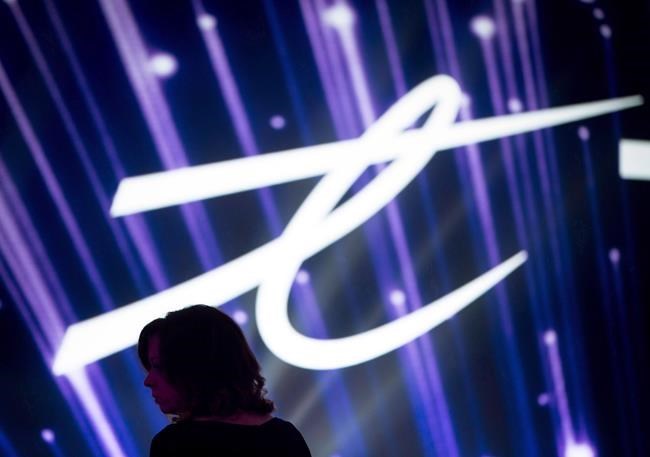Telus Corp. will hit the road on Monday to try and woo investors for its public offering of subsidiary Telus International, as it spins off its customer experience business from its telecom offerings.
The US$958.3 million public offering for the subsidiary will bring on outside investors to boost its digital and artificial intelligence business, according to documents filed with the U.S. Securities and Exchange Commission.
Telus Corp. is the largest client and controlling shareholder of Telus International, and would own about two-thirds of Telus International after the public offering.
Telus International expects to price its shares between US$23 and US$25 each on the New York Stock Exchange, and the company will keep $493.9 million in proceeds. The IPO money will help it pay down debt, including debt raised to acquire other companies.
Investors would be buying into Telus' business for games, communications, media, e-commerce, fintech, health care and hospitality, as well as recently acquired data annotation company Lionbridge AI.
By opening the business to the public stock market, Telus is drawing back the curtain on a fast-growing part of its business.
Telus says that last year, the Telus International businesses made between US$95 million and US$102 million in net income. Telus International's revenue has grown to more than $1 billion in 2019 from $573.2 million in 2017. (Parent company Telus Corp. has $15.3 billion in annual revenue.)
The Telus International companies have about 600 clients, including Uber, TikTok, PayPal, MasterCard, Wix Fitbit, TransUnion and Zara. Social games company Zynga, initially worked with Telus to do customer support for the game Farmville, and now works with Telus on its current portfolio of games, which includes Words with Friends.
Two of Telus International's biggest customers are Telus Corp. itself, which represented 26 per cent of revenue in 2019, and Google, which was about 12 per cent of sales. Another client, a "leading social media company," represented about 16 per cent of sales in the first nine months of last year.
Telus International lists its competitors as consulting services and IT companies as well as "traditional" contact centre and outsourcing companies.
Lionbridge AI labels text, images, videos and audio in more than 300 languages for social media, search, retail and mobile. In its prospectus, Telus International describes building bots, an engineer-to-engineer support system for Google, moderating social media sites and using "gamer culture" in its customer support for video game players.
"Customers are increasingly choosing experience over product and price, and are willing to pay more for positive customer service experiences," the company says in its filings for prospective investors.
The company, which operates in 20 countries and 50 languages, says it has also bet that some of its services can be provided between "offshore" and "nearshore" businesses. The filings warn potential investors, for example, that it could pose a risk to the business if Lionbridge's crowdsourcing work requires hiring independent contractors as employees.
While the "work from anywhere" model could benefit Telus International, as companies restructure, the filings also warned that clients' outsourcing demands "might be lower in the future, as some of our clients might decide to refrain from offshore / nearshore outsourcing due to the pressures they face from increased domestic unemployment resulting from the COVID-19 pandemic."
The stock would trade on both the New York and Toronto stock exchanges under the symbol TIXT. After the IPO, Baring Private Equity Asia will hold about 31.5 per cent of voting power in Telus International.
This report by The Canadian Press was first published Jan. 25, 2021.
Companies in this story: (TSX:T)
Anita Balakrishnan, The Canadian Press



